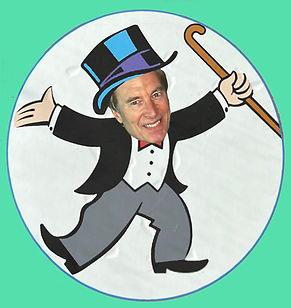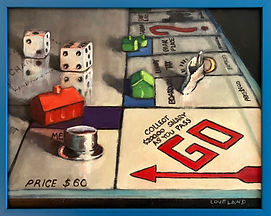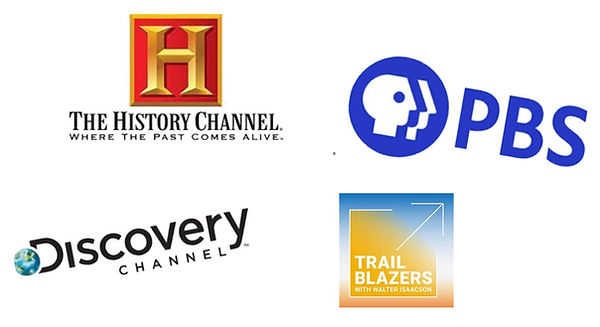Philip E.
Orbanes
Author of many insightful books on
toy, game and pop culture history

Playthings and Pop Culture Historian
Winner of the coveted DAU Premi Especial Award, The AGPI Bradley-Parker Lifetime Achievement Award and Games & Puzzle’s Most Promising New Writer Award.

About Phil
Armed with decades of experience as an executive and inventor in the toy and games business, coupled with a deep love of history, Phil has become one of the industry's most accomplished historians.



The Monopoly Game and I were fated to stick together. After my first ten years in the games business in New York City, my family and I moved to New England where I became head of new product research at Parker Brothers, the makers of Monopoly. To my surprise, no one at the firm knew much about the game's intricacies and winning strategies. The head of the marketing department asked me if I would take over as chief judge at the upcoming regional, national and international Monopoly Championships. I agreed (with some butterflies) because of the honor, and because the outsider who had been serving as judge had come up short. I made sure I knew the rules inside out. I discovered I was pretty good at overseeing these championship games. I had resolved disputes quickly and maintained good harmony between the contestants. Since then, I've judged nearly every series of championships (which tend to be held every five years).
And thanks to this experience, I became a Monopoly author. I was first asked to write a player's guide–The Monopoly Companion– then a history of Parker –The Game Makers– followed by a complete history of the game–Monopoly: The World's Most Famous Game– and lastly a guide about how to capitalize on life lessons taught by the game and make better financial decisions–Monopoly, Money and You.

My Life in Games
My life in games began when I was eight years old. It's true. On a crisp Friday in April, I was invited to spend the night with a favorite young uncle and aunt, who thought I was old enough to play a "real" game. Before I went bed, they let me study the one they had just purchased. It was named Monopoly. I had played many simple games and quickly realized this one was a step up. It included little green houses and red hotels, a stack of play money and cards printed with columns of numbers. In the morning, other aunts arrived; six of us played for 3 hours. I learned quickly and did pretty well (although looking back, I made a mistake trading for and trying to build up the expensive Green color group). The experience changed me. For the first time, I had competed on a level playing field with adults whom I greatly admired, and hoped to be like when I grew up.
As soon I got home, I urged my mother to buy a copy of Monopoly for our household. She did. Two weeks later, now hooked on games, I asked her to buy Clue. She did so, but with some reservation. By now, my eyes were wide open to the excitement of playing games based on "real life." I asked for another. This time, she replied, "Two games is enough, Philip. Your birthday is in six weeks. You'll have to wait 'til then." Undeterred, I proceeded to invent my first game. It came instinctively. I don't remember much about it except it was about mining and discovering ore. I used my mother's typewriter (making good use of its two-color ribbon), an old game board, cardboard from the back of writing tablets, typing paper, and likely paste. Thereafter, I routinely
invented and cobbled together a new game whenever inspiration struck.
As I was starting college, I made the rather insane decision to invest some of my modest college savings into starting my own game company ("Gamescience Corporation"). It actually worked out. I sold it during my junior year at Case institute of Technology, while attending my first trade show, and went to work for the acquirer upon my graduation. I have been a part of the games industry ever since. Early in my career, I became intrigued by the largely unknown history of the games business and its key contributors. I began to research and write about the industry and many of its most influential games. Along the way, I discovered the origins of the Monopoly game, Clue, Risk and many many others. It is a passion that continues to fascinate me.

Recent Media Appearances
The most recent of hundreds of interviews with Phil Orbanes
include appearances on the History Channel, Discovery,
PBS, Trail Blazers and during
Strategy Fest 2022.
Many of these interviews highlight the rich history
of the Monopoly game.

Phil has maintained a close working relationship with the Strong Museum of Play in Rochester, New York. Most recently, he presented, in detail, the story of how the Monopoly game was used to smuggle escape aids to POWs in Nazi Germany during World War II, aided by an authentic recreation of a "doctored" 1943 game.


What I
believe
to be
true.
"Toys and games are not only influenced by our culture, they impart a significant
effect on culture itself. Their influence on history is also measurable and profound. Why? Every child is affected by the developmental contribution of toys. Meanwhile, for the past several decades, games have become a leading component of adult leisure time. The study of how this came to be is immensely interesting and gratifying."
